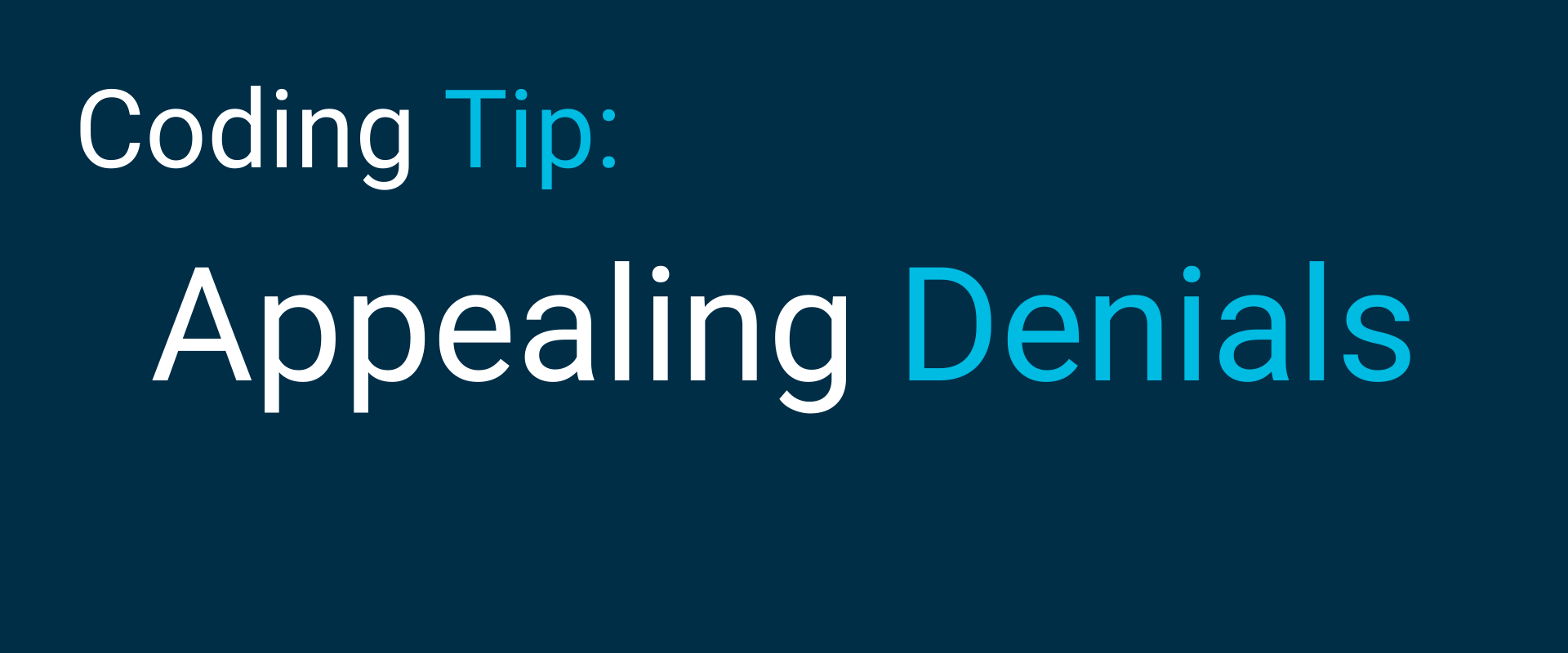To appeal or not appeal, that is the question
Let’s face it, denied claims are a pain for everybody: the practice, the biller, and the patient. It takes so much time and effort to appeal the denial, and in some cases the denial is upheld, even when all evidence provided by the practice supports the need for the service. So, when should the denial be appealed, and when should the $0 payment be posted and the poster just move on? The answer to this question will almost always be identified in the explanation of benefits (EOB).
Appeal smarter, not harder
Let’s preface this response with, “you must, when coding the service, describe the service using the most accurate code available to describe the service provided”. Period. If the most accurate code to describe the service has been used, the biller/coder has the option to request the consideration of an alternate code that could be covered.
If the service is not a covered service, or if the service falls within the plans restrictions or limitations, there is little chance that an appeal will be successful. For example, if core buildups (D2950) are not a covered service on a patient’s plan, no amount of pleading, bargaining, or supporting documentation will result in payment.
Be proactive
When challenging a denial for a covered service with an appeal, it is important to know the rules of the game. Being proactive when submitting the claim can help avoid appealing on the back end.
Here’s an example: when submitting a claim for a crown buildup (D2950), proof must be provided to the payer that the core buildup is necessary for the retention of the crown and that a crown is anticipated to restore the tooth. If the plan was not provided with the necessary supporting documentation to prove the need for additional retention when the claim was initially submitted, there is a good chance an appeal is in your future.
Less is not more
It is best practice to submit a pre-determination for a service when there is a question of coverage. This documentation from the insurance stating payment will or will not be made helps manage patient and practice owner expectations. If you have a pre-determination, provide a copy of it with the claim for that service. This does not replace the necessary supporting documentation, but should be included in addition. Whether you are submitting a claim or appealing a denial, you can never send too much documentation.
When in doubt, make a call before making the call
As stated before, the explanation of benefits (EOB) will establish one of these reasons for the denial:
- the service is denied because it is not a covered service
- denied because the dental consultant felt it was unnecessary
- Insurance company did not have proof the service was anticipated
If the denial reason is not clearly stated on the explanation of benefits (EOB), call the insurance company to get clarification before giving up on the claim.
Ultimately, know what the payer requirements are, and give them what they need when initially submitting the claim or when appealing a denial. Ensure all of your clinical documentation supports your claim and follow the rules when appealing a claim.
With over 200 insurance companies, more than 700 dental procedure codes, and over 9,000 medical procedure codes, you may be finding yourself bogged down with appealing denied claims, we can help.
eAssist Dental Solutions and Practice Booster work seamlessly together to ensure your claims are coded correctly and sent with all necessary information for maximum and timely reimbursement. So you get 100% of what is rightfully owed to you.




0 Comments